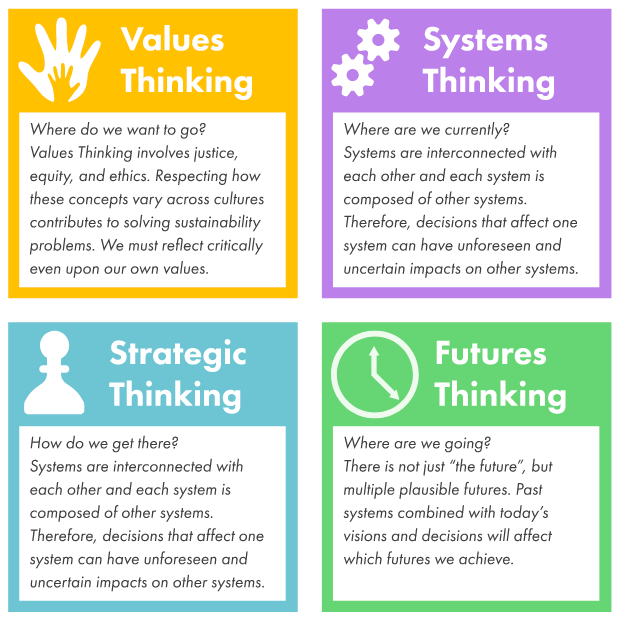Contemporary research and movements involving agricultural and food system sustainability. Socio-cultural factors influencing food and agriculture.
CSS 124 aims to provide foundational language, concepts, and current knowledge that result in informed citizens, eaters, and practitioners in any food-related field. Food touches all of our lives in many ways, and is a great entry point for all students who want to learn more about sustainability.
This survey-style course provides an introduction to topics relevant to the study of sustainable agriculture and food systems. The course is designed around providing literacies that will help students navigate multi-dimensional considerations, develop critical thinking skills, understand different perspectives, and identify effective ways to create change.
What kind of "literacies" do we learn about?
Sustainability literacy includes systems, strategic, futures, and values thinking:

I aim to scaffold learning so that students can gain a "big picture" view of the U.S. food system, our challenges and opportunities, and the way food shapes our lives and our world. Examples of course content include:
- Environmental economics and measures of economic well-being beyond GDP
- Inclusive histories of agriculture, land, and labor
- Food access, food cultures, and food sovereignty
- Public policy, including the Farm Bill, food assistance, and international trade agreements
- Media literacy to help decipher industry, science, and public interests
The class content consists of online readings, media such as TED talks and podcasts, and interactive student discussions (asynchonous or synchronous) to actively engage with the weekly topics. Sources from biological, social, and economic disciplines, as well as many interdisciplinary scholars and advocates, contribute to the learning experience. Beyond content and lectures, peer-to-peer sharing among various backgrounds and geographies make this course a unique and transformative learning experience.



 Print
Print Email
Email